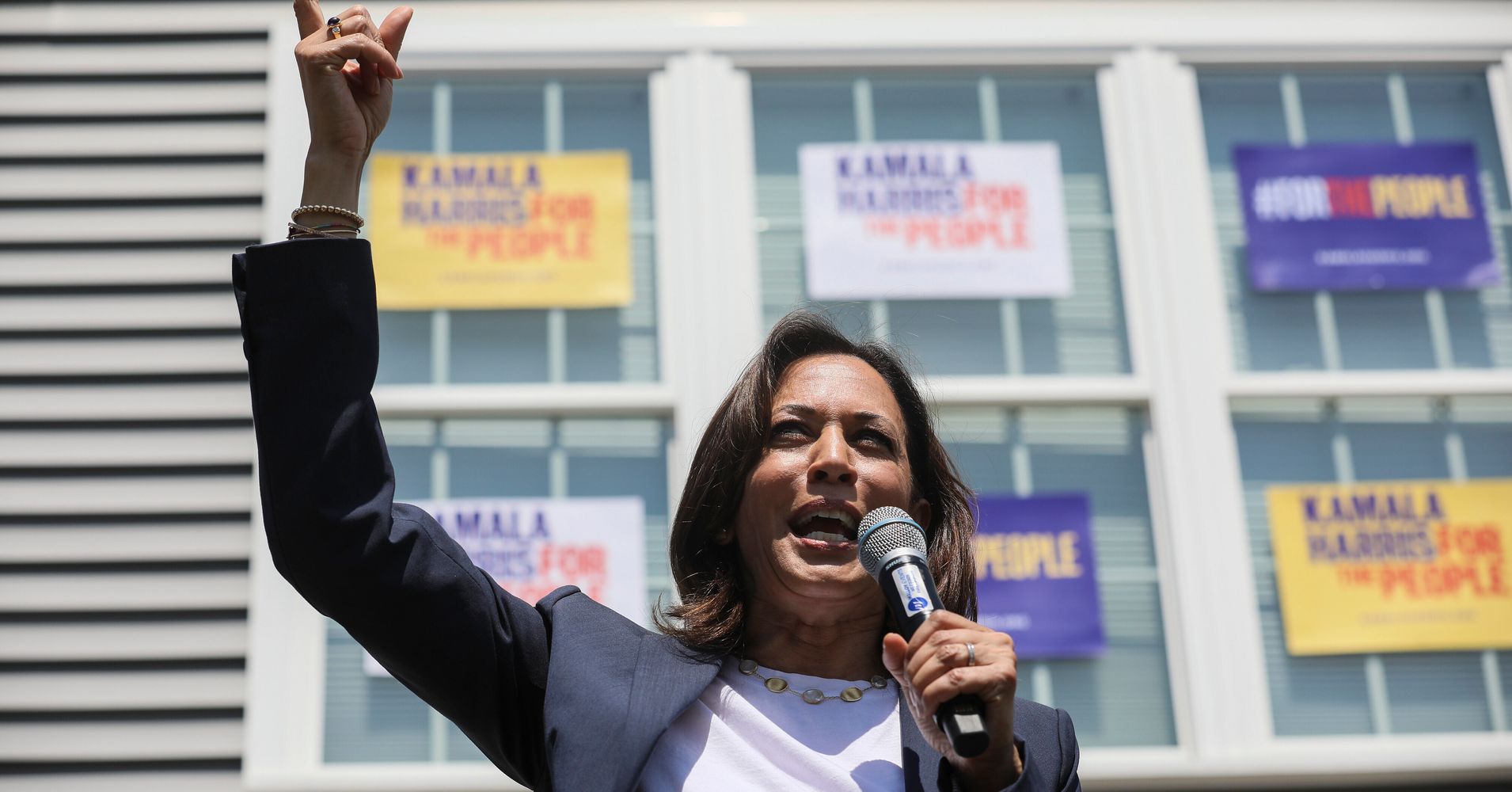[ad_1]

Sen. Kamala Harris (D-Calif.), who is running for president, wants better workplace protections for domestic workers, who often work behind closed doors and face abuse and exploitation.
On Monday, Harris and Rep. Pramila Jayapal (D-Wash.) announced the “Domestic Workers Bill of Rights Act,” which they plan to introduce in the Senate and House.
The legislation would provide protection at the federal level to the over 2 million domestic workers in the U.S., including nannies, house cleaners and home care workers. Domestic workers have historically been excluded from basic labor protections under federal and state laws. Without such protections, many workers have been forced to tolerate low pay and abuse.
The bill ensures rights including overtime pay, paid sick days, meal and rest breaks, harassment and discrimination protections, pay for shifts that are canceled last-minute, and more.
The lawmakers called it a “first-ever” bill at the national level to provide “concrete protections for the entire care sector,” according to a news release.
“[Domestic workers] provide essential care and support to aging parents, people with disabilities, children, and homes,” Harris said in the release. “However, our nation’s domestic workers have not been afforded the same rights and benefits as nearly every other worker, and it’s time we change that.” The senator noted that many domestic workers are women and people of color.
Over 90% of domestic workers in the U.S. are women, per a 2012 national study of domestic workers. More than half of them were women of color, and 46% were immigrants. The survey, which interviewed over 2,000 nannies across 14 cities, found that more than one-third said they worked long hours without breaks. Over 90% of workers surveyed said they didn’t complain about problems with their working conditions because they were afraid they’d lose their job.
The bill is co-sponsored in both chambers by over two dozen Democratic lawmakers, including Harris’ fellow presidential contenders Sens. Kirsten Gillibrand (D-N.Y.), Amy Klobuchar (D-Minn.) and Cory Booker (D-N.J.), as well as by progressive Reps. Ilhan Omar (D-Minn.) and Ayanna Pressley (D-Mass.).
Currently, only nine states and one municipality have bills of rights for domestic workers enshrined in law, including New York, Illinois, California, and the city of Seattle.
Ensuring that the rights recognized in the legislation are actually implemented and enforced is “definitely going to be a challenge,” Jess Morales Rocketto, political director for the National Domestic Workers Alliance, told HuffPost last week.
“I don’t want to pretend one piece of legislation will handle enforcement across the government ― that’s the difficult work of governing,” Rocketto said. She noted that the bill includes resources like education and outreach to workers to ensure they know their rights. It also creates an interagency task force, which includes the Department of Labor, to support enforcement.
The bill also includes a national hotline for domestic workers to call in case of emergencies or to get support.
“I felt like I was a slave,” former caregiver Teresita Villasenor told HuffPost in 2016 of a job in California that she quit in 2014. Villasenor, who is from the Philippines, had been working 12 hours a day, seven days a week, for 18 months.
“My boss took advantage of me, and I wasn’t getting enough pay,” she said. “I was working like a horse, I didn’t even have time to read a book. I felt depressed, and oppressed.”
A group of more than 100 domestic workers is in Washington, D.C. with advocates this week to speak with lawmakers about the legislation.
“The courageous working-class women, women of color and immigrant women who are demanding their rights today are unwilling to be excluded any longer,” Jayapal said in a release.
REAL LIFE. REAL NEWS. REAL VOICES.
Help us tell more of the stories that matter from voices that too often remain unheard.
[ad_2]
Source link

